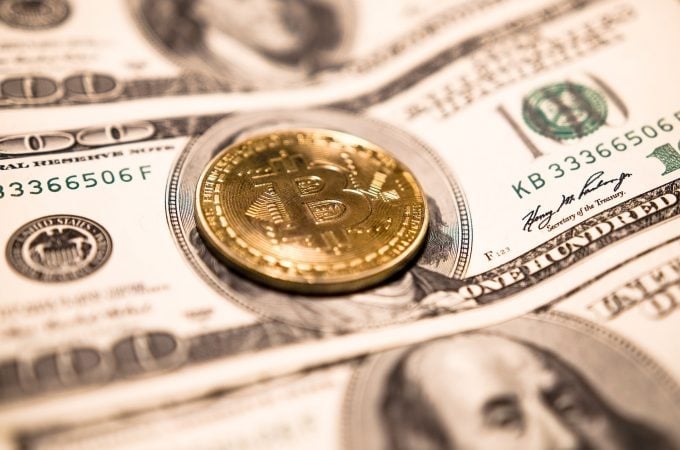In 2025, few financial topics are as hotly debated as Bitcoin. The world’s most talked-about digital asset, it is presented by some as an unavoidable revolution and by others as a high-risk investment. Discussions are heating up on social media, in the financial press and even in everyday conversations.
So, should you really invest in Bitcoin this year? To answer this question, it is essential to understand what Bitcoin is, its advantages, its dangers and the appropriate strategies.
Bitcoin: a unique digital asset
A technology born in 2009
Bitcoin was created in 2009 by the mysterious Satoshi Nakamoto. Often referred to as a ‘virtual currency’, it does not have the status of an official currency. In France, only the euro is recognised as legal tender. Bitcoin is actually a crypto-asset, i.e. a digital asset that circulates exclusively online.
Blockchain: its foundation
Each Bitcoin transaction is validated by a network of computers, without the intervention of a bank or government. This decentralised system is based on blockchain, a public, tamper-proof ledger. Transactions recorded on it cannot be modified or deleted, ensuring transparency and security.
A programmed scarcity
Unlike traditional currencies, which can be issued in large quantities by central banks, bitcoin is limited to 21 million units. By 2025, approximately 94% of this stock will already be in circulation, fuelling the idea of a rare asset, comparable to ‘digital gold’.
Why invest in Bitcoin?
High potential returns
Bitcoin is known for its extreme volatility. Its price can skyrocket or plummet, but its instability also creates opportunities. Between 2021 and 2025, we saw spectacular fluctuation:
- 56,301€ in November 2021
- 15,421€ in December 2022
- Nearly 99,858€ in January 2025
This rollercoaster ride attracts investors looking for quick gains.
Portfolio diversification
Adding a small portion of Bitcoin to your investments allows you to broaden your exposure to new asset classes. For a cautious investor, an allocation of 5% to 10% maximum can boost a portfolio, provided you are willing to accept the risk.
Growing adoption
The year 2024 marked a major change: Bitcoin ETFs were approved in the United States, via BlackRock and Fidelity. Countries such as El Salvador and Bhutan had already adopted it, but in 2025, the United States itself took the plunge. Interest from large companies (Tesla, MicroStrategy) confirms this trend towards institutionalisation.
The dangers of investing in Bitcoin
Constant volatility
The main risk remains volatility. In a matter of days, Bitcoin can lose a significant portion of its value. Investing without a strategy exposes you to rapid losses.
No guarantee in the event of bankruptcy
Unlike bank deposits, which are protected by the Deposit Guarantee Fund, bitcoins are not covered by any guarantee. If your exchange platform goes bankrupt, your funds may be lost forever.
Fraud is still common
The sector attracts scams. Many unregulated platforms offer to buy or store bitcoins. Some disappear overnight with users’ funds.
The question of security
Bitcoins are stored in digital wallets (virtual wallets). Poor management of your private keys can cause you to lose access to your assets. Cyberattacks are also a constant threat.
Regulation in 2025
Since the end of 2024, the European Union has implemented a new framework: the status of PSCA (crypto-asset service provider). Former French PSANs benefit from a transitional period until 30 June 2026, but will then have to obtain European approval.
To reduce risks, it is essential to choose a platform that has this status and can be verified on the official AMF or ESMA lists.
How to invest in Bitcoin?
Choose the right platform
Among the popular players:
- Binance: global leader, competitive fees, but complex interface
- eToro: user-friendly, allows you to copy other traders, but with higher fees
- Bitpanda: accessible and diversified (crypto, metals, ETFs)
- Finary: French platform, ideal for comprehensive monitoring of your assets
- Revolut: convenient for getting started, but limited and not PSCA-compliant
Secure your assets
There are two main solutions:
- Online wallet: easy but more vulnerable to hacking
- Physical wallet (e.g. Ledger key): more secure but requires careful management of private keys
Define a clear strategy
- DCA (dollar-cost averaging): invest a fixed amount each month to smooth out the purchase price
- Diversification: don’t put all your money into Bitcoin, but spread it between BTC, Ethereum and a few solid altcoins
- Profit taking: sell some of your holdings after a sharp rise to reduce risk
Beyond Bitcoin: other cryptocurrencies
Ethereum (ETH)
The second largest cryptocurrency by market capitalisation, Ethereum is a smart contract platform that powers DeFi, NFTs and many other innovations.
Solana (SOL), Polkadot (DOT), Chainlink (LINK)
These projects each provide specific solutions: fast transactions, interoperability or connection between blockchain and the real world.
Stablecoins
Backed by the dollar or the euro, stablecoins (USDT, USDC) offer a less volatile alternative, but remain subject to management and regulatory risks.
Testimonials and examples
Investor testimonials abound on forums and social media. Some have multiplied their investments, while others have lost everything.
Example: Alain, a French individual, fell victim to a fraudulent platform and was never able to recover his investment.
Tips for responsible investing
- Only invest money you can afford to lose
- Diversify your investments: Bitcoin should remain a small part of your portfolio
- Secure your private keys: a lost key means lost capital
- Avoid promises of quick profits: there are many scams out there
- Educate yourself before you start to understand the technology and the risks
Investing in bitcoins in 2025: a measured gamble
Bitcoin remains an essential benchmark in the crypto world. Its potential returns, programmed scarcity and growing adoption appeal to many investors. But its volatility, lack of guarantees and risk of fraud should encourage caution.
In 2025, investing in Bitcoin may make sense as a way to diversify a portfolio, provided that exposure is limited and strict security rules are followed.
Conclusion
Investing in Bitcoin is not about seeking guaranteed returns, but accepting risk in exchange for high potential. By choosing a regulated platform, securing your assets and adopting a sensible strategy, you can take advantage of this new asset class without jeopardising your finances.
Bitcoin is above all a modern diversification tool, not a shortcut to instant wealth.
FAQ – Investing in Bitcoin in 2025
1. Can you still invest in Bitcoin in 2025?
Yes, Bitcoin remains accessible via regulated platforms. Its high price does not prevent you from buying fractions of Bitcoin.
2. Is it possible to buy Bitcoin without going through an online platform?
Most purchases are made through exchanges. However, there are automatic teller machines (Bitcoin ATMs) in some large cities.
3. Do you need to be a financial expert to invest in Bitcoin?
No, but it is essential to learn the basics of blockchain and understand the risks before investing.
4. Can you lose all your money by investing in Bitcoin?
Yes. Between volatility and scams, it is possible to suffer total losses if you are not vigilant.
5. What taxation applies to Bitcoin in France?
Gains made on the sale of Bitcoin are subject to a flat tax of 30% (capital gains tax).
6. Should you store your bitcoins in a personal wallet?
It is recommended. Physical wallets (such as Ledger) offer increased security compared to online platforms.
7. Is Bitcoin only for large investors?
No. Thanks to the divisibility of bitcoin, it is possible to invest as little as a few dozen pounds.
8. What is the difference between Bitcoin and altcoins?
Bitcoin is the first and most capitalised cryptocurrency. Altcoins include all others, with various uses (Ethereum, Solana, etc.).
9. What is Bitcoin mining?
Mining involves validating transactions on the blockchain using powerful computers. Miners are paid in Bitcoin.
10. Is Bitcoin a safe haven asset like gold?
Some call it ‘digital gold’ because of its scarcity, but its high volatility makes it less stable than physical gold.









